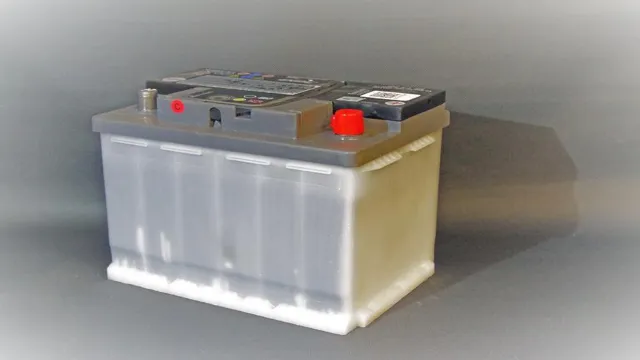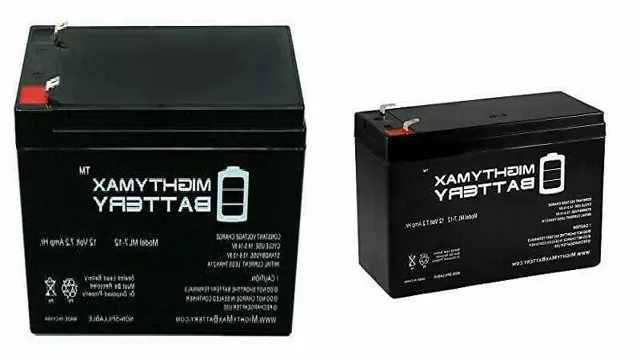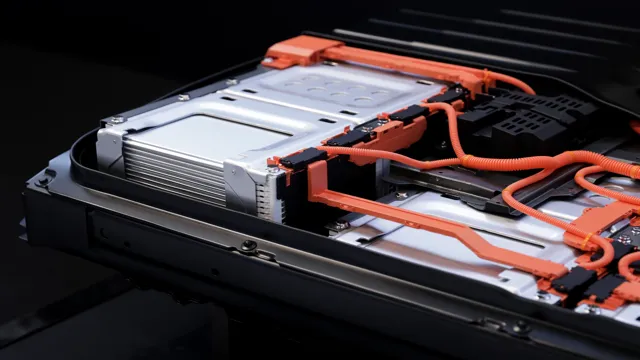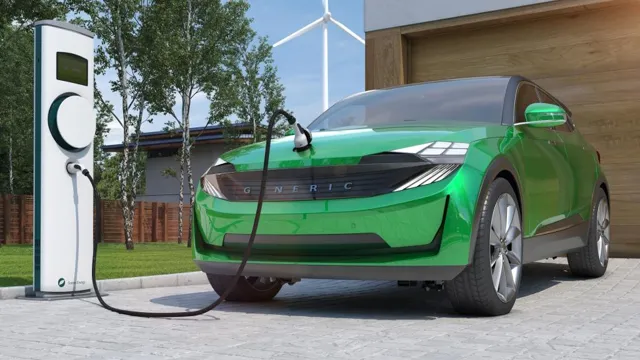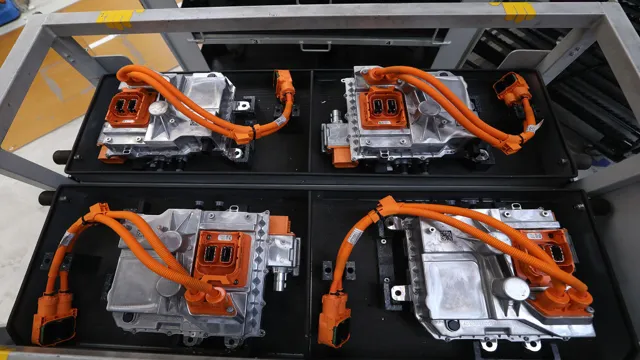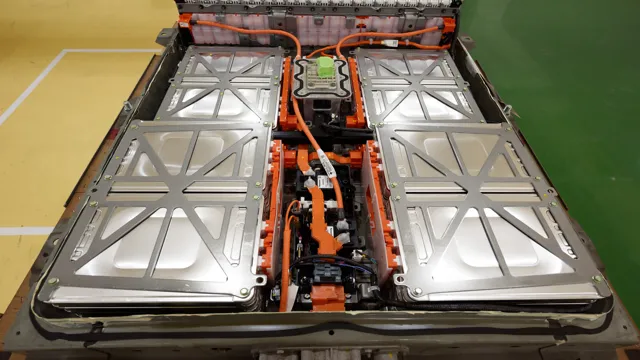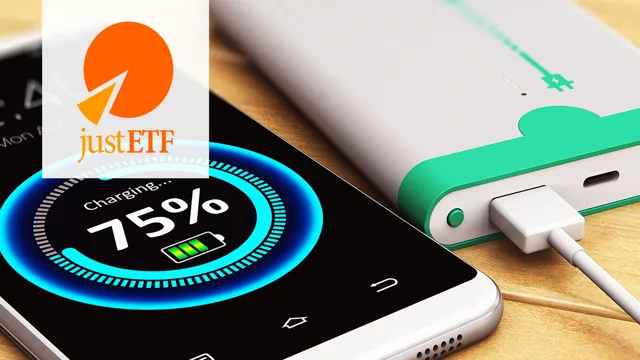Uncovering the Truth: How a Dead Car Battery Can Lead to Electrical Problems
When you go to start your car and hear nothing but a faint clicking sound, it can be frustrating and leave you feeling stranded. Dead car batteries are a common problem, especially during the colder months when the battery is working extra hard to start up the engine. But it’s not always just a dead battery that’s causing your car not to start.
Electrical problems can also be the culprit, leaving you scratching your head and wondering what to do next. In this blog, we’ll explore the common causes of dead car batteries and electrical problems, and what you can do to prevent them from happening. So, buckle up and let’s get started!
What Causes a Dead Car Battery?
Yes, a dead car battery can certainly cause electrical problems in your car. When your battery doesn’t have enough power to start your engine, it can also affect other components of your car’s electrical system. For example, if your battery is weak or dead, your alternator – which keeps your battery charged – won’t be able to function properly.
This means that even if you jumpstart your car and get it running again, your battery may not be charging correctly. Additionally, a dead battery can cause voltage spikes or drops, which can damage other electrical components in your car. These issues can cause problems with your car’s lighting, starting, and overall performance.
So, if you’re experiencing electrical issues with your car, the first thing you should check is your battery’s charge level and condition.
Low Temperature or Old Battery
A dead car battery can be frustrating, especially when it happens unexpectedly. One common cause of a dead car battery is low temperatures. Batteries operate best in warm temperatures, and when it’s cold outside, the chemical reactions inside the battery slow down, making it harder for the battery to produce the necessary energy to start the car.
This is why it’s more common to experience a dead battery in the winter. Another cause of a dead car battery is an old battery. Over time, batteries lose their ability to hold a charge and will eventually need to be replaced.
If you notice your car’s headlights or interior lights dimming or flickering, or your car struggling to start, it may be time for a new battery. Regular maintenance, such as checking the battery’s voltage and making sure the terminals are clean, can also help prolong the life of your car’s battery. So, if you find yourself with a dead battery, don’t panic, it could just be due to the cold weather or an old battery that needs replacing.
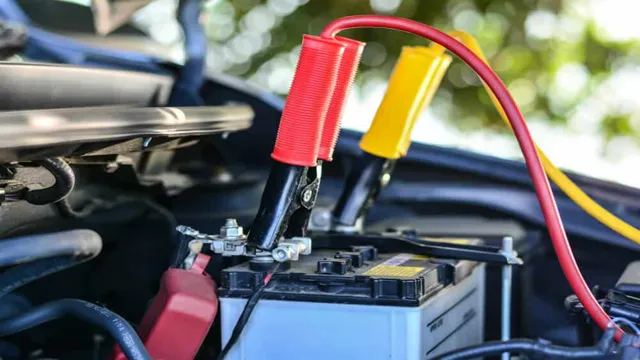
Leaving the Lights On
Leaving the lights on in your car can cause a dead battery, but did you know that there are other factors at play? A dead car battery can be caused by a variety of reasons, including extreme temperatures, corrosion on the battery terminals, a faulty alternator, and old age. Extreme hot or cold temperatures can cause the battery to work harder, draining its power quickly. Corrosion on the battery terminals can prevent the battery from receiving a charge, leading to a dead battery.
A faulty alternator, which charges the battery while the car is running, can also cause a dead battery. And, just like any other electronic device, a car battery has a lifespan and will eventually need to be replaced. So the next time you experience a dead car battery, consider all of these factors before blaming leaving your lights on.
Can a Dead Battery Cause Electrical Problems?
Yes, a dead car battery can cause electrical problems. If the battery is completely dead, then it will not be able to provide the necessary energy to start the engine of your car. This can lead to a variety of electrical problems as it can prevent other important electrical components from functioning properly.
For example, a dead battery can cause the alternator to work harder than it needs to, potentially leading to the failure of this critical component. Moreover, a dead battery can disrupt the flow of electricity to other systems in the car, such as the power windows, headlights, and radio. It’s important to regularly check the health of your car battery and replace it as needed to avoid these types of issues.
Additionally, if you experience electrical problems with your car, it’s always best to have a professional mechanic diagnose the root cause of the issue to ensure that the battery is not the sole culprit.
Yes, in Some Cases
The answer is yes, in some cases, a dead battery can cause electrical problems in your car. This is because electrical systems in modern cars rely heavily on the battery to function. When the battery dies, it can cause a domino effect on other parts of the car, like the alternator, starter, and other electrical components.
These components are designed to work together, and when one part fails, it can put strain on the others. As a result, you may experience issues like a malfunctioning radio or dashboard display, dim headlights, and a weak horn. It’s important to have your battery checked regularly and replaced when necessary to avoid more serious electrical problems down the road.
So, if you’re experiencing any electrical issues in your car, it’s worth checking your battery first to see if it needs to be replaced.
Power Surges and Voltage Spikes
Power surges and voltage spikes can cause serious damage to electronic equipment. However, many people don’t realize that a dead battery can be just as problematic. When a battery dies, it can cause the voltage in the system to drop, which can cause electrical problems.
For example, it can lead to issues with the alternator, which may not be able to maintain the proper voltage output. This can then cause problems with other components in the system, such as the starter motor and the fuel injection system. In addition, a dead battery can cause power surges when it is recharged, which can also cause damage to electronic components.
So, if you’re experiencing electrical problems with your vehicle, it’s important to check the battery and make sure it’s holding a charge. If it’s not, replacing the battery may be the best course of action to prevent further damage to your vehicle.
Damage to Electrical Components
A dead battery can cause quite a few electrical problems in your vehicle. When a battery dies, it sends an excess electrical current through your vehicle’s electrical system. This can cause damage to various electrical components, such as the alternator, starter, and even computer modules.
If left unresolved, these issues can lead to even larger problems down the road. For example, a damaged alternator may cause the battery to die prematurely, while a damaged computer module could even prevent your car from starting altogether. That’s why it’s important to get your battery checked and replaced as soon as you notice any issues, to prevent any further damage to your vehicle’s electrical system.
How to Prevent Dead Car Batteries and Electrical Issues
If your car battery dies, it can cause a multitude of electrical problems. When your car battery dies, it not only means you can’t start your car, but all of your electrical components stop working – from the headlights to the radio. Dead batteries can also cause issues with the alternator and other electrical components in your car.
The best way to prevent these problems is to regularly maintain your car battery. This means checking the battery’s connections for corrosion and ensuring it is fully charged. It’s also important to avoid leaving electronics running when the car is off, as this can drain the battery.
If you do experience a dead battery, make sure to have it properly jump-started by a professional to avoid any further electrical issues down the line. Taking care of your car battery will not only prevent electrical problems but will also extend the lifespan of your battery.
Regular Maintenance and Checkups
Regular maintenance and checkups are crucial to preventing dead car batteries and electrical issues. Much like going to the dentist for regular checkups prevents cavities, taking your car for regular maintenance can prevent issues from escalating and potentially causing larger problems. This includes checking your battery voltage, inspecting your battery cables and terminals, and ensuring that your alternator is working properly.
It is also important to regularly replace your battery, especially if it is over 3 years old. In addition to these steps, keeping your car clean and parking in a sheltered area can also help prevent electrical issues and corrosion. By taking these preventative measures, you can avoid the inconvenience and cost of dealing with a dead battery or electrical issue down the road.
Use of Charging Devices and Cables
The regular use of charging devices and cables can ultimately lead to dead car batteries and other electrical issues. Therefore, it is essential to take preventive measures to avoid such problems. Firstly, ensure that all charging cables are in good condition and not damaged.
Also, do not use the same charging cable for different devices as it can cause a short circuit. Another crucial point to keep in mind is to switch off all charging devices before disconnecting them from the car’s power source. Additionally, it is essential to maintain the battery by keeping it at optimal levels of charge.
Avoid using the car battery to charge devices for an extended period, as it can damage the battery. Finally, regularly check the battery’s health and charge level to avoid unexpected failures. In summary, taking simple precautions while using charging devices and cables can help prevent dead car batteries and other electrical issues, potentially saving you time, money, and hassle in the long run.
Conclusion
In short, yes, a dead car battery can cause a host of electrical problems. It’s like the electricity equivalent of the butterfly effect – one tiny, seemingly insignificant event can set off a chain reaction of issues. But fear not, for with proper maintenance and attention, you can prevent your car’s electrical system from experiencing a catastrophic meltdown.
So remember folks, a little charge goes a long way!”
FAQs
Can a dead car battery cause electrical problems?
Yes, a dead car battery can cause electrical problems. When the battery is dead, it cannot provide enough power to the electrical components of the car, leading to issues such as dimming headlights, malfunctioning radio, and electrical system failure.
How can a dead car battery affect the alternator?
When a car battery is dead, the alternator has to work harder to compensate for the lack of power. This can cause the alternator to fail or malfunction, leading to more severe electrical problems.
What is the lifespan of a car battery?
The lifespan of a car battery varies based on factors such as usage and climate. Typically, a car battery can last anywhere from 3 to 5 years.
How can I prevent a dead car battery from causing electrical problems?
The best way to prevent a dead car battery from causing electrical problems is to routinely maintain and replace your car battery as needed. Additionally, turn off all electrical components of your car when you are not using them to help preserve the battery life.
